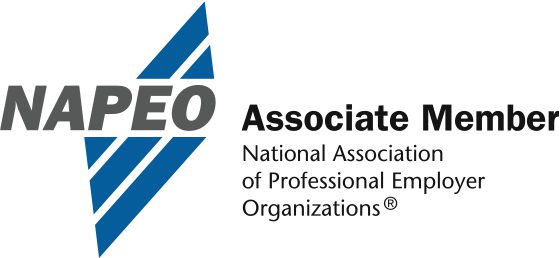Guest blog provided by One Medical
Contributors: Christine Celio, Ph.D., Amy Buchanan Ph.D., Sara Whitmore, NP, Kristen Nelson, NP, and Andrew Bertagnolli, Ph.D.
Have you ever noticed a dog in your apartment complex even though your building forbids them? Or sat next to someone with a pet on the plane? If so, you may be wondering what’s different about these particular animals.
It’s likely that these pets have been designated as service or emotional support animals. Emotional support animals are those that provide emotional support to people with specific mental health diagnoses or disabilities. These animals have been recommended as part of a mental health treatment plan by a licensed provider or mental health professional to provide companionship, relieve loneliness, or help with depression, anxiety, and certain phobias.
You might be thinking to yourself, “Well, my dog makes me feel better. Can he be an emotional support animal and come on the plane too?” If you’ve ever been a pet owner, you’re likely already aware of how much pets can improve your life. But just because pets can be a source of comfort, doesn’t mean all pets can or should be emotional support animals. It may be nice to have a pet in your apartment or on the plane, but emotional support animals aren’t appropriate for everyone. Here’s what you need to know:
What’s the difference between service animals and emotional support animals?
While many people confuse emotional support animals with service animals, there are a few clear distinctions. Service animals are those that have been formally trained to perform specific tasks for individuals with specific disabilities, including intellectual, sensory, and physical disabilities, such as autism, blindness, and paralysis. These tasks might include things like guiding a blind person, alerting someone who is deaf, pulling a wheelchair, providing assistance during a seizure, reminding someone with mental illness to take their medications, and calming someone with Post Traumatic Stress Disorder during an anxiety attack. As they are usually needed more frequently to help with physical acts, they are offered legal protection through the Americans with Disabilities Act (ADA) and are allowed in hotels, restaurants, airplanes, schools, and public places where other animals are not. The ADA limits service animals to dogs only.
Emotional support animals, on the other hand, are not formally trained to perform any specific tasks for their owners. Instead, these animals can provide comfort, companionship, and a sense of safety to those struggling with mental health conditions. The Federal Fair Housing Act requires that accommodations for emotional support animals be made in places that do not allow pets. Unlike service animals, however, emotional support animals are NOT protected by the ADA. The emotional support these animals provide simply by being present is NOT legally considered a “task”, like those performed by service animals. This means that businesses and public places are NOT required to accommodate emotional support animals and reserve the right to deny them access. Airlines, for instance, are required to allow service animals on flights, but are not required to permit emotional support animals.

How can I get an emotional support animal?
If you think an emotional support animal may be right for you, you’ll need a letter from a licensed healthcare provider or mental health professional explaining your need for one. You may be asked to provide this documentation when seeking housing that normally does not allow pets or when looking to fly with a pet. It’s important to note, however, that there is no official way to register your pet as an emotional support animal, so beware of online sites selling licenses, certificates, letters, and registration. These will not provide sufficient evidence of the need for an emotional support animal.
How will my provider decide if an emotional support animal is right for me?
To understand if an emotional support animal is right for you, your provider will need to evaluate your mental health concerns and work with you to create a treatment plan tailored to your specific needs. Given the complexity and sensitivity that is often part of mental health care, this process might take more than one visit. Your provider may want to review your medical records and symptoms, or speak with others involved in your care. They may also ask you to complete one or more questionnaires or to undergo additional evaluation to help confirm the need for an emotional support animal. This may include lab or psychological testing and/or evaluation by one or more consultants. It’s important to not that while emotional support animals can be recommended for mental health treatment, they are not usually the only part of the plan. Your provider may recommend follow-up visits and lifestyle changes, or refer you to a behavioral health specialist.
If you already have an emotional support animal and need updated paperwork, you should bring any related medical records, previous support letters, and anything else to help document your history and treatment. Your provider will review this content, discuss your current mental health symptoms, and work with you to decide if an emotional support animal is still the best approach to your care.
If an emotional support animal is appropriate, what will be asked of me?
An emotional support animal will likely be part of a broader care plan decided on between you and your provider. If your provider recommends regular follow-up visits, lifestyle changes, or seeing a specialist, like a psychotherapist or psychiatrist, as part of your care plan, it’s important to follow through on these recommendations.
What should I think about if I am going to get an emotional support animal?
- As emotional support animals are intended for individuals with mental health conditions and disabilities, it’s important to take the following into account before getting one:
- Having an emotional support animal indicates a mental health disability which might mean directly (or indirectly) having to disclose having a disability to others. This might mean telling coworkers, your manager, airline employees, or your landlord that you have a debilitating mental illness that is being treated by an emotional support animal.
- Caring for an animal, especially in a small space, can be challenging. We recommend considering how to feed, walk, and manage voiding in enclosed spaces like office buildings, airplanes and apartment buildings. Furthermore, some might find managing an animal in an airport may cause more stress (e.g., managing luggage while trying to keep the ESA on leash, being in a small confined space for multiple hours, etc.).
- Emotional support animals come with costs. If you decide to adopt an animal, you can expect to take on more bills for things like vet visits, dog walkers, or kennel bills. It is worth considering how the cost of pet ownership might affect your stress and affect your mental health.
- While we might be able to provide a letter to document the need for an ESA, we cannot attest to the safety of your animal. It is important to have the animal evaluated by a veterinarian to get an additional certification that the animal is appropriate to bring into the desired settings (e.g., an airplane, an office, an apartment building) and does not pose a safety risk.
- Airline letters are valid for just one year. Documentation and re-evaluation for your mental health condition will need to be completed annually.

Have more questions about emotional support animals and your mental health? Our primary care team is here to help. At One Medical, we aim to provide seamless, quality care designed around you and your unique health needs. Book an appointment today to connect with a member of our clinical team in-person or through our 24/7 virtual care platform.







